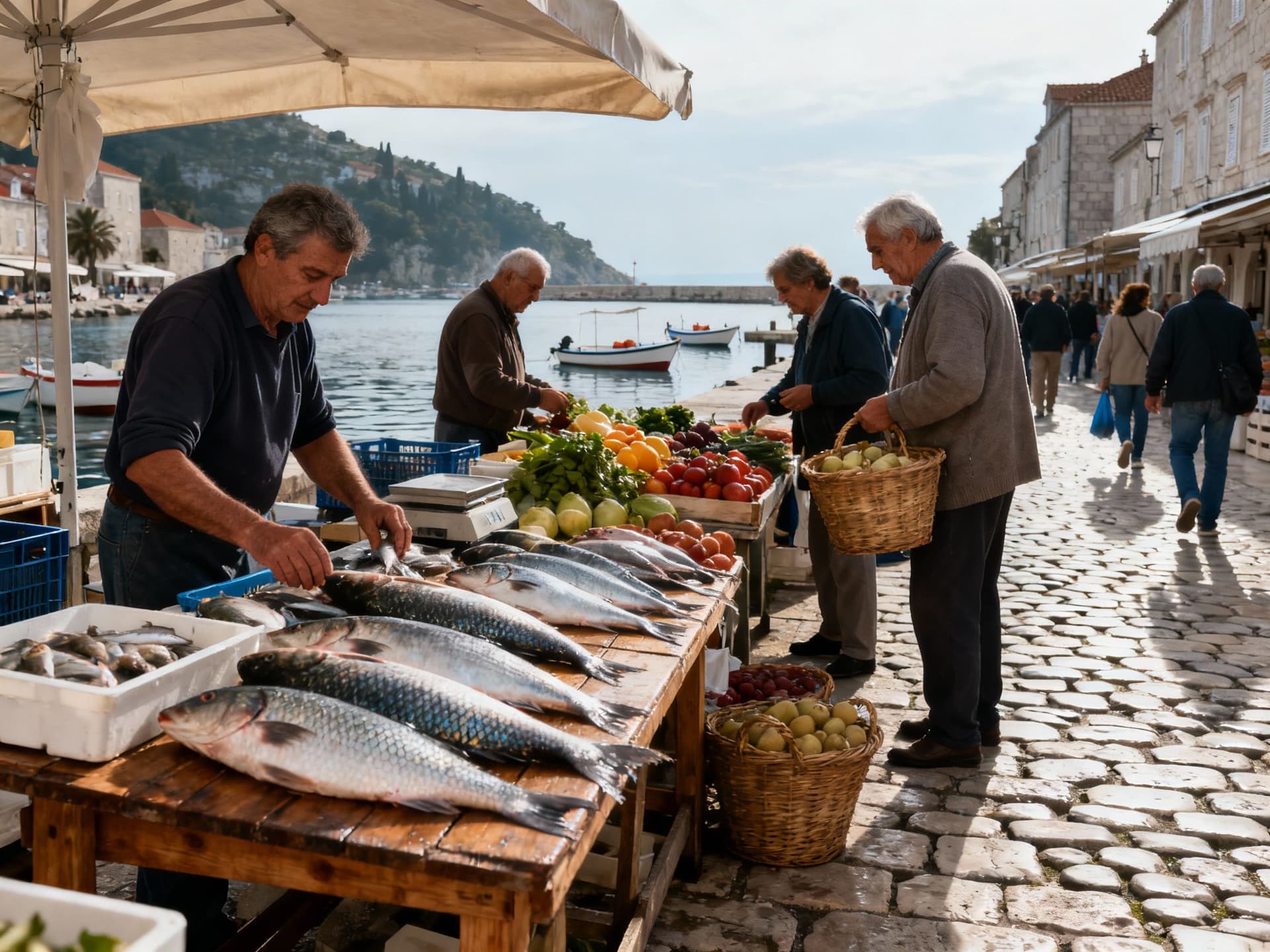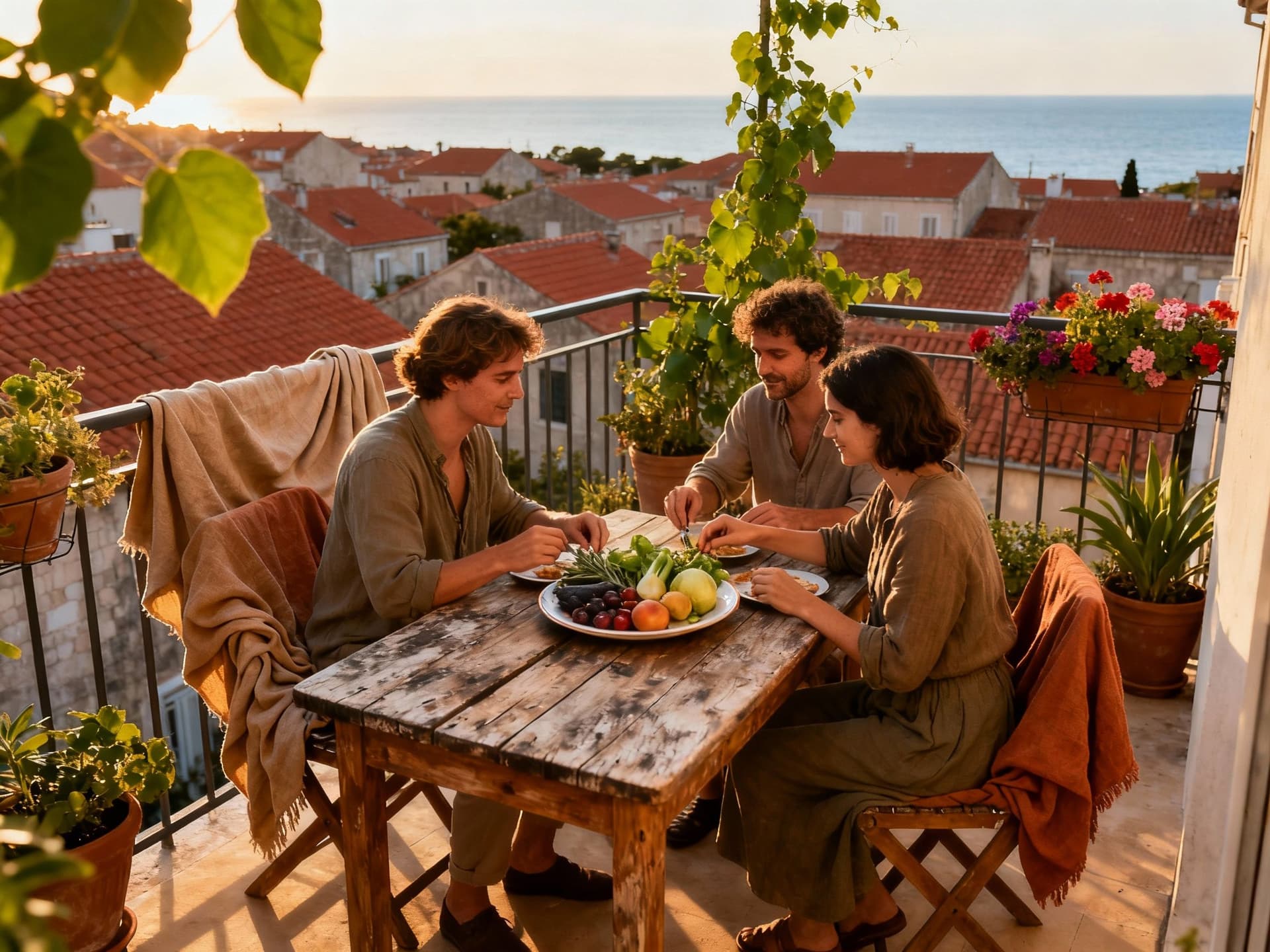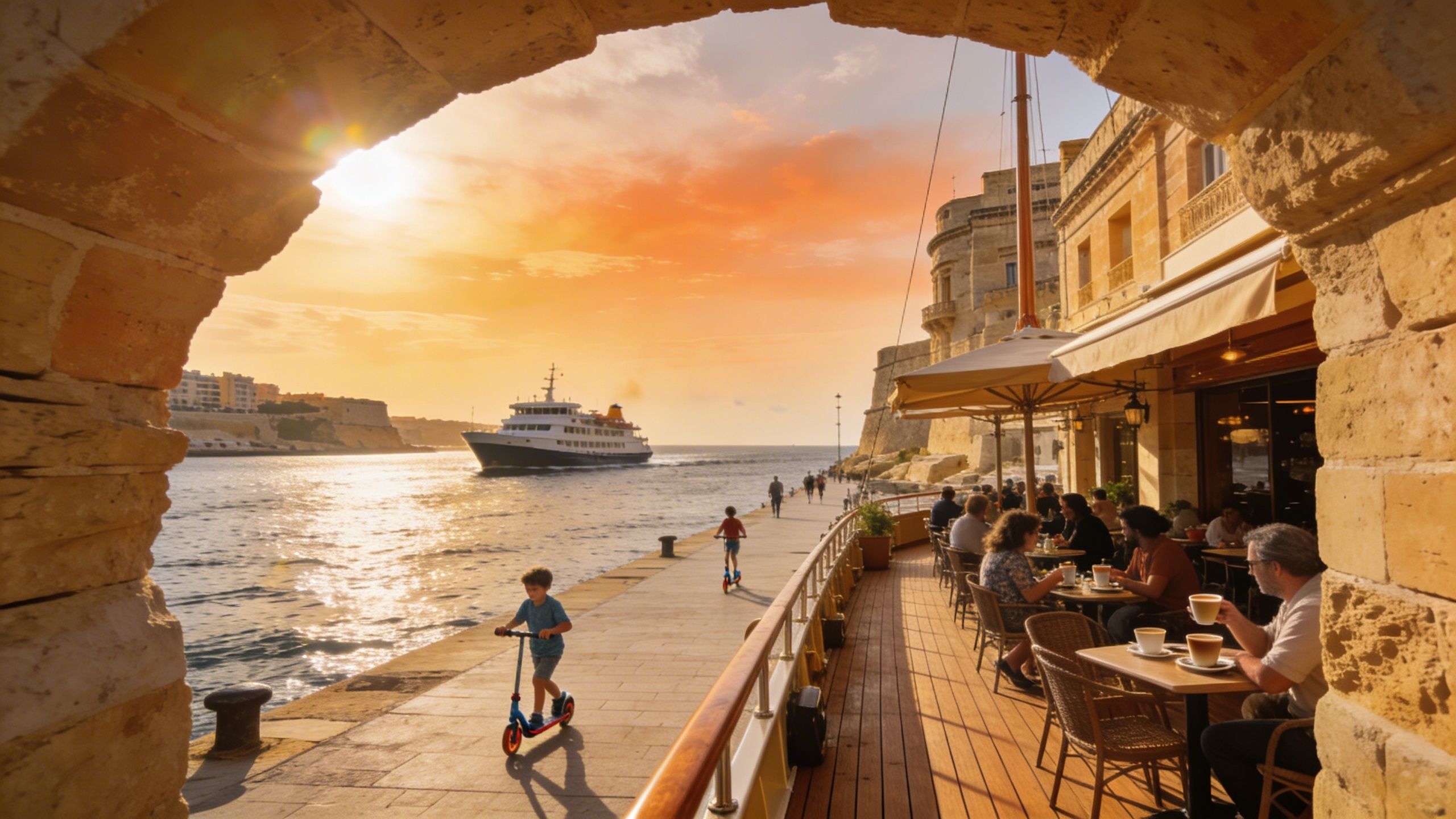Croatia — Residency, Taxes & Legal Steps
How residency rules, transfer taxes, VAT and municipal levies affect buying and living in Croatia; practical steps and local insights for confident purchase decisions.
Imagine waking to the hum of a coastal market in Split, espresso in hand, then closing the door on a stone‑walled apartment and stepping into the Adriatic light. Croatia’s daily rhythms—sea, markets, neighbourhood cafés—are tangible and composed. For international buyers the appeal is clear: Mediterranean lifestyle, EU membership and a varied property stock from island villas to Zagreb townhouses. But the lived reality requires clear legal and tax understanding before making an offer; procedural delays, tax changes and reciprocity rules materially affect outcomes.
Living the Croatian Life

Daily life in Croatia balances old urban patterns and seasonal coastal intensity. Mornings in Zagreb unfold around bakeries and tram corridors; afternoons on the Dalmatian coast are oriented to the sea and small harbour routines. Neighbourhoods vary sharply: historic cores favour compact apartments and stone streets; newer suburbs offer larger plots and more modern construction. These differences shape property choices — size, maintenance expectations and utility of outdoor space are not abstract preferences but determinants of value and running costs.
Coastal towns and island life
Picture Hvar’s quay at dawn or the pebble beaches of Makarska: tourism drives both lifestyle and local pricing. Coastal properties typically command a premium, come with higher seasonal service demands and often sit inside municipal frameworks that tax short‑term lets differently. If you plan part‑time occupancy or holiday rentals, expect stricter local regulation, tourist tax obligations and management costs — all of which affect net returns and year‑round livability.
Urban neighbourhoods: Zagreb and Rijeka
Zagreb’s leafy districts — Gornji Grad, Maksimir, Jarun — favour longer‑term residents and flatter price growth compared with the coast. Expect easier access to services, international schools and health care. For buyers prioritising year‑round life, these urban centres trade coastal spectacle for stability and lower seasonal management overheads. Apartments here often require less renovation but can present different regulatory hurdles when converting second homes to rental units.
Making the Move: Practical Legal & Tax Considerations

The transaction rests on three legal pillars: eligibility to purchase, tax liabilities at transfer and ongoing local taxes. EU/EEA/Swiss citizens have straightforward rights to buy; many third‑country nationals can buy subject to reciprocity and ministry approval. At purchase, if VAT does not apply the real estate transfer tax is generally 3% of market value; new builds sold under VAT regimes may instead carry 25% VAT in specific circumstances. Recent fiscal reforms also introduced annual property levies set by municipalities, which can materially change holding costs.
Who can buy: reciprocity and approvals
Non‑EU nationals frequently need Ministry of Justice approval based on reciprocity between Croatia and the buyer’s home country. That process is property‑specific and can add weeks or months to registration. Where reciprocity is absent, buyers commonly use a Croatian company to hold title, which changes tax exposure and compliance. Early legal counsel is not optional: confirmation of eligibility should be requested prior to signing any conditional pre‑contract.
Taxes at purchase and ownership
Key tax points every buyer must plan for:
- Real estate transfer tax: typically 3% of market value when VAT is not charged.
- VAT on new construction: can apply at 25% for qualifying transfers — confirm with seller and tax advisor.
- Annual property levies: municipalities may charge 0.6–8.0 EUR/m² under reforms; exemptions often apply to primary residences and long‑term rentals.
- Capital gains and resale: taxation varies with holding period and exemptions; professional advice needed for investment properties.
Insider Knowledge: What Expats Wish They’d Known
Expats consistently report three surprises: the time needed to register property, the municipal variability of running costs, and the operational demands of coastal homes. Paperwork — from land registry entries to building permits — is precise and occasionally slow. Local customs around services, seasonal closures and neighbour relations affect both enjoyment and maintenance budgeting. Understanding these nuances ahead of purchase reduces friction and preserves the lifestyle you came for.
Cultural integration and everyday life
Croatian social life is localised: weekend markets, family‑run konobas and small harbour gatherings dominate. Learning basic Croatian or engaging a local fixer opens doors to community services and trusted tradespeople. Expat groups cluster in familiar areas—Split’s Varoš, Dubrovnik’s Lapad, Hvar town—helping newcomers settle, but full integration takes time. Factor that timeline into relocation plans; immediate social ease does not equate to legal or fiscal clarity.
Long‑term living and investment considerations
If you intend to rent, short‑term holiday lets can be lucrative but are subject to local licensing, tourist tax and higher operating costs. Long‑term rentals tend to be favoured by municipal incentives under recent policy shifts. For a residuary investment horizon, prioritise properties with year‑round demand (city centres, well‑connected coastal towns) and low maintenance burdens. Plan for contingencies: property management, seasonal vacancy and evolving local tax rules.
Practical next steps before you bid
- 1) Verify purchase eligibility based on your citizenship and property type; obtain written clearance if required.
- 2) Commission a local legal due diligence report covering encumbrances, zoning and building permits.
- 3) Model all taxes (transfer tax vs VAT), municipal levies and likely maintenance costs for a 5–10 year horizon.
- 4) Engage a bilingual notary and a registered real‑estate lawyer to manage contract drafting, deposit escrow and registry submission.
Conclusion: Croatia delivers a distinct Mediterranean life combined with EU legal frameworks. Buyers who pair a clear lifestyle brief with disciplined legal and tax planning find the transition smoother and investments more predictable. Start with eligibility checks, secure specialist legal advice, and plan for municipal variability in holding costs. An experienced local agency and lawyer are practical partners — not salespeople — who translate the lived appeal of a place into a defensible, compliant purchase.
British expat who relocated to Marbella in 2012. Specializes in rigorous due diligence and cross-border investment strategies for UK and international buyers.


